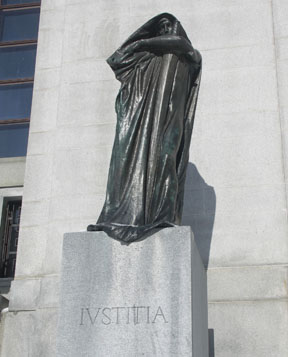The Supreme Court of Canada will hear the following four appeals this week:
 Jan. 16
Jan. 16 — Federal Court —
Alliance of Canadian Cinema, Television & Radio Artists v. Bell Aliant Regional Communications LPAdministrative law: The Canadian Radio-television and Telecommunications Commission sought a reference from the Federal Court of Appeal to determine the status of Internet service providers, specifically do retail ISPs carry on broadcasting undertakings by providing access to broadcasting via the Internet?
Jan. 17 — Quebec —
Tessier Ltée v. Commission de la santé et de la sécurité du travailConstitutional law: This case involves labour relations and the division of powers. The dispute is whether Tessier Ltée’s undertaking of providing heavy equipment rental services and longshoring services falls under provincial or federal jurisdiction.
Jan. 18 — Quebec —
Attorney General of Quebec v. ACharter of Rights and Freedoms: The applicant in this case is challenging the constitutionality of several provisions in Quebec’s Civil Code that do not grant the same rights to those in common-law relationships as those who are married. The applicant lived with a partner for seven years and they had three children together. Following their separation, the applicant filed a motion in the Superior Court seeking child custody, support, a lump sum, use of the family residence, a provision for costs, and an interim order. There is a publication ban and sealing order in the case.
Jan. 19 — British Columbia —
Attorney General of Canada v. Downtown Eastside Sex Workers United Against Violence SocietyCharter of Rights and Freedoms: The respondents allege that several sections in the Criminal Code related to prostitution infringe on certain Charter rights. At issue is whether the respondents’ challenge of the constitutionality of those sections has public interest standing.
The SCC will also release the following ruling this week:
Jan. 20 — British Columbia —
Catalyst Paper Corp. v. Corp. of the District of North CowichanMunicipal law: Catalyst Paper Corp. challenged the District of North Cowichan’s property tax rates, claiming the rates were unreasonable because they have no relationship to the municipal service it uses or consumes. Catalyst sought a declaration that the property tax rate is illegal but the judge dismissed the petition. The main issue is whether a municipality has legislative discretion, including setting property tax rates, without statutory criteria.

 Jan. 16 — Federal Court — Alliance of Canadian Cinema, Television & Radio Artists v. Bell Aliant Regional Communications LP
Jan. 16 — Federal Court — Alliance of Canadian Cinema, Television & Radio Artists v. Bell Aliant Regional Communications LP